When it comes to the compact SUV market, the BMW X1 and VW Tayron are two contenders that embody luxury, technology, and performance. Both brands have established their reputations over the years, making this comparison an exciting opportunity to delve into their features, innovations, and capabilities.
BMW X1 vs VW Tayron - Differences and prices compared
Compare performance (326 HP vs 272 HP), boot space and price (38200 £ vs 39600 £ ) at a glance. Find out which car is the better choice for you – BMW X1 or VW Tayron?
Design and Dimensions
The BMW X1 boasts a stylish and aerodynamic profile, measuring 4500mm in length, 1845mm in width, and 1642mm in height. This design not only enhances its aesthetic appeal but also contributes to dynamic handling and stability. Its cargo space ranges from 490 to 540 liters, ensuring practicality without compromising on luxury.
The VW Tayron, on the other hand, has a larger footprint, measuring 4792mm in length and 1853mm in width. With a height of 1668mm, it offers a commanding road presence and spacious trunk capacity of up to 885 liters. This positioning provides both functionality and comfort for passengers and cargo alike.
Performance and Engine Options
When it comes to powertrain options, the BMW X1 offers a variety of engines, including diesel and petrol variants, as well as mild-hybrid and plug-in hybrid options. The performance range spans from 136 HP up to an impressive 326 HP. Fuel efficiency is commendable, with consumption figures as low as 4.6 L/100km for the most efficient models, and acceleration from 0-100 km/h in as little as 5.4 seconds for the top-end variant.
The VW Tayron also provides a robust selection of engines and power outputs, ranging from 150 HP to 272 HP. Its mild-hybrid and plug-in hybrid offerings enhance fuel efficiency, with combined consumption figures around 5.4 L/100km. The Tayron is slightly slower off the mark, with acceleration times reaching their best at 6.1 seconds for the most powerful variant.
Transmission and Handling
Both vehicles feature dual-clutch automatic transmissions for seamless gear changes. The BMW X1 comes with options for front-wheel drive and all-wheel drive, enhancing its versatility for different driving conditions. It manages to deliver a well-rounded driving experience, appealing to enthusiasts and everyday drivers alike.
The Tayron, too, offers front-wheel and all-wheel drive configurations, making it capable in various terrains. Its setup is engineered for comfort, while still providing a sporty feel when pushed to its limits. On the road, the Tayron feels stable and confident, making it ideal for long journeys and city driving alike.
Innovation and Technology
The BMW X1 integrates cutting-edge technology, featuring a state-of-the-art infotainment system that includes wireless Apple CarPlay and Android Auto, along with a digital cockpit that provides essential driving information at a glance. Safety features are top-notch as well, including lane-keeping assist and adaptive cruise control.
The VW Tayron impresses with its digital cockpit and advanced infotainment system, ensuring a user-friendly experience. It offers a similar suite of safety features, including adaptive cruise control and emergency braking systems. Moreover, its hybrid variants promise a reduced environmental impact, catering to eco-conscious consumers.
Conclusion: Which SUV Reigns Supreme?
The choice between the BMW X1 and VW Tayron ultimately depends on individual preferences. If sporty handling and luxury features are a priority, the BMW X1 may be the way to go. However, if you seek spaciousness, cutting-edge technology, and a versatile driving experience, the VW Tayron stands out.
Both SUVs cement their place in the competitive compact SUV market, offering unique strengths and cutting-edge innovations. Potential buyers should consider not only the specs but also how each vehicle fits their lifestyle and preferences.
Here’s where it gets real: The technical differences in detail
Costs and Efficiency:
Looking at overall running costs, both models reveal some interesting differences in everyday economy.
BMW X1 has a minimal advantage in terms of price – it starts at 38200 £ , while the VW Tayron costs 39600 £ . That’s a price difference of around 1384 £.
Fuel consumption also shows a difference: VW Tayron manages with 1.50 L and is therefore decisively more efficient than the BMW X1 with 2.50 L. The difference is about 1 L per 100 km.
As for electric range, the VW Tayron performs distinct better – achieving up to 123 km, about 42 km more than the BMW X1.
Engine and Performance:
Power, torque and acceleration say a lot about how a car feels on the road. This is where you see which model delivers more driving dynamics.
When it comes to engine power, the BMW X1 has a slightly edge – offering 326 HP compared to 272 HP. That’s roughly 54 HP more horsepower.
In acceleration from 0 to 100 km/h, the BMW X1 is slightly quicker – completing the sprint in 5.40 s, while the VW Tayron takes 6.10 s. That’s about 0.70 s faster.
In terms of top speed, the BMW X1 performs minimal better – reaching 233 km/h, while the VW Tayron tops out at 221 km/h. The difference is around 12 km/h.
There’s also a difference in torque: BMW X1 pulls somewhat stronger with 477 Nm compared to 400 Nm. That’s about 77 Nm difference.
Space and Everyday Use:
Beyond pure performance, interior space and usability matter most in daily life. This is where you see which car is more practical and versatile.
Both vehicles offer seating for 5 people.
In curb weight, BMW X1 is hardly perceptible lighter – 1575 kg compared to 1682 kg. The difference is around 107 kg.
In terms of boot space, the VW Tayron offers distinct more room – 885 L compared to 540 L. That’s a difference of about 345 L.
In maximum load capacity, the VW Tayron performs clearly perceptible better – up to 2090 L, which is about 545 L more than the BMW X1.
When it comes to payload, VW Tayron slightly takes the win – 566 kg compared to 500 kg. That’s a difference of about 66 kg.
Who wins the race in the data check?
The VW Tayron sits well ahead of its rival in the objective data comparison.
This result only shows which model scores more points on paper – not which of the two cars feels right for you.
Costs and Consumption
View detailed analysis
Engine and Performance
View detailed analysis
Dimensions and Body
View detailed analysis
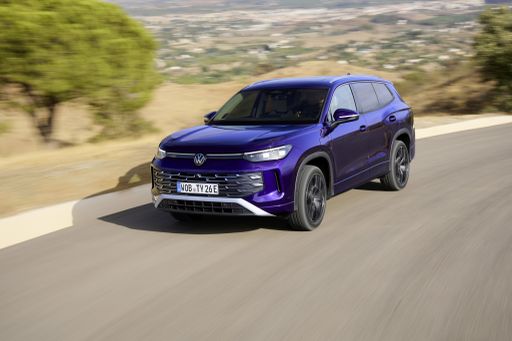
VW Tayron
BMW X1
The BMW X1 brings a premium feel to compact crossover life, wrapping practical space and agile handling into a tidy, upscale package. It’s ideal for buyers who want BMW driving dynamics without the bulk, offering everyday comfort and a few clever tricks to keep the commute interesting.
details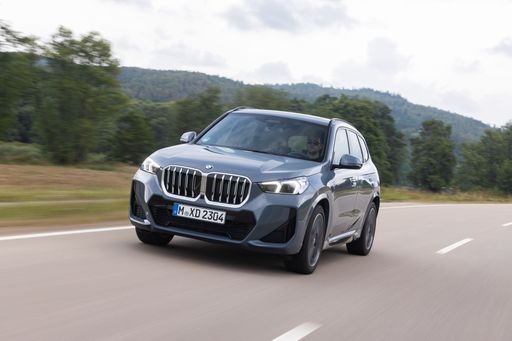
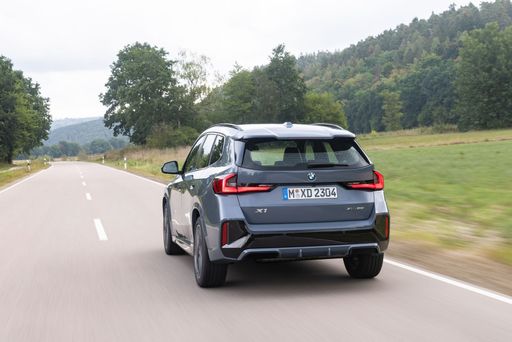
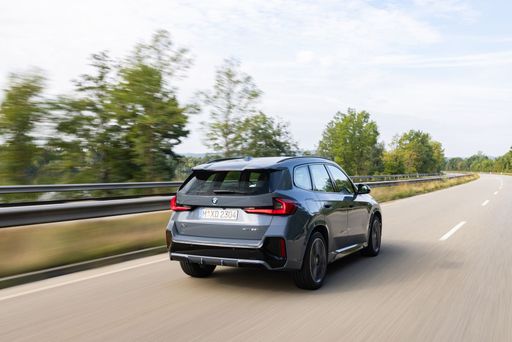
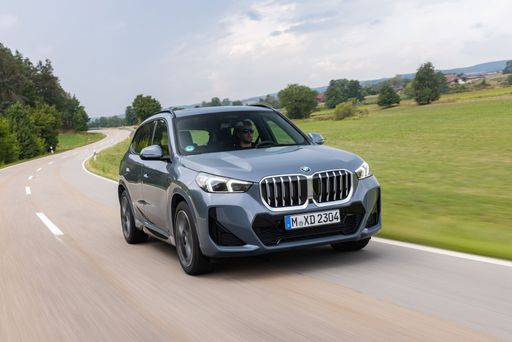
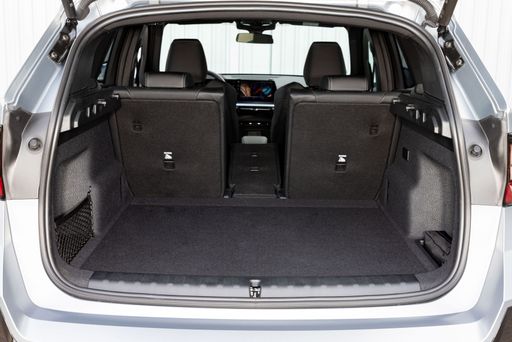
VW Tayron
The VW Tayron is Volkswagen's roomy, no-nonsense SUV that pairs clean, familiar styling with a practical cabin built for families and everyday use. It rides comfortably, packs sensible tech and creature comforts, and feels like the sensible sweater of SUVs for buyers who prefer steady value over headline-grabbing drama.
details
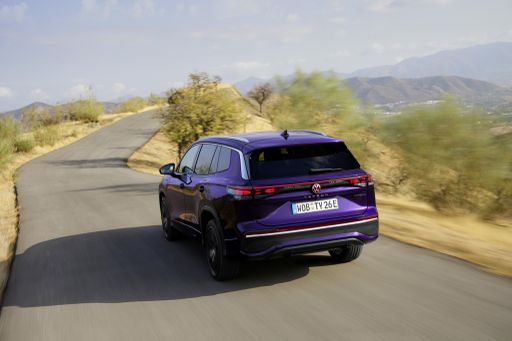
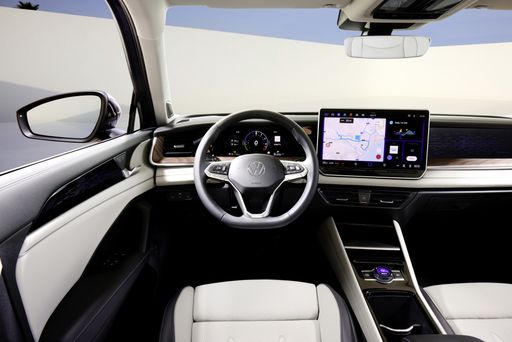
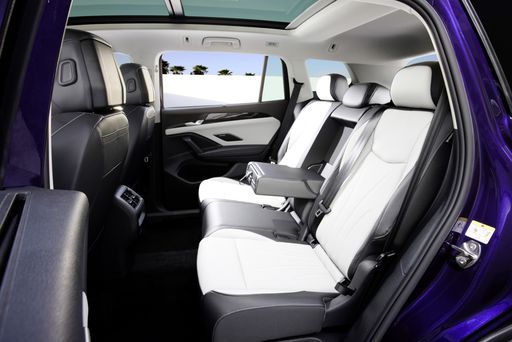
Costs and Consumption |
|
|---|---|
|
Price
38200 - 55500 £
|
Price
39600 - 53300 £
|
|
Consumption L/100km
2.5 - 7.7 L
|
Consumption L/100km
1.5 - 8.5 L
|
|
Consumption kWh/100km
-
|
Consumption kWh/100km
-
|
|
Electric Range
81 km
|
Electric Range
116 - 123 km
|
|
Battery Capacity
14.20 kWh
|
Battery Capacity
19.70 kWh
|
|
co2
57 - 175 g/km
|
co2
33 - 192 g/km
|
|
Fuel tank capacity
47 - 54 L
|
Fuel tank capacity
45 - 58 L
|
Dimensions and Body |
|
|---|---|
|
Body Type
SUV
|
Body Type
SUV
|
|
Seats
5
|
Seats
5
|
|
Doors
5
|
Doors
5
|
|
Curb weight
1575 - 1935 kg
|
Curb weight
1682 - 1948 kg
|
|
Trunk capacity
490 - 540 L
|
Trunk capacity
705 - 885 L
|
|
Length
4500 mm
|
Length
4792 mm
|
|
Width
1845 mm
|
Width
1853 - 1866 mm
|
|
Height
1630 - 1642 mm
|
Height
1666 - 1668 mm
|
|
Max trunk capacity
1495 - 1545 L
|
Max trunk capacity
1915 - 2090 L
|
|
Payload
490 - 500 kg
|
Payload
489 - 566 kg
|
Engine and Performance |
|
|---|---|
|
Engine Type
Diesel MHEV, Petrol MHEV, Petrol, Diesel, Plugin Hybrid
|
Engine Type
Petrol MHEV, Diesel, Petrol, Plugin Hybrid
|
|
Transmission
Automatic
|
Transmission
Automatic
|
|
Transmission Detail
Dual-Clutch Automatic
|
Transmission Detail
Dual-Clutch Automatic
|
|
Drive Type
Front-Wheel Drive, All-Wheel Drive
|
Drive Type
Front-Wheel Drive, All-Wheel Drive
|
|
Power HP
136 - 326 HP
|
Power HP
150 - 272 HP
|
|
Acceleration 0-100km/h
5.4 - 9.2 s
|
Acceleration 0-100km/h
6.1 - 9.7 s
|
|
Max Speed
190 - 233 km/h
|
Max Speed
204 - 221 km/h
|
|
Torque
230 - 477 Nm
|
Torque
250 - 400 Nm
|
|
Number of Cylinders
3 - 4
|
Number of Cylinders
4
|
|
Power kW
100 - 240 kW
|
Power kW
110 - 200 kW
|
|
Engine capacity
1499 - 1998 cm3
|
Engine capacity
1498 - 1984 cm3
|
General |
|
|---|---|
|
Model Year
2024 - 2025
|
Model Year
2025
|
|
CO2 Efficiency Class
D, E, F, B
|
CO2 Efficiency Class
E, F, G, B
|
|
Brand
BMW
|
Brand
VW
|
Is the BMW X1 offered with different drivetrains?
The BMW X1 is offered with Front-Wheel Drive or All-Wheel Drive.
